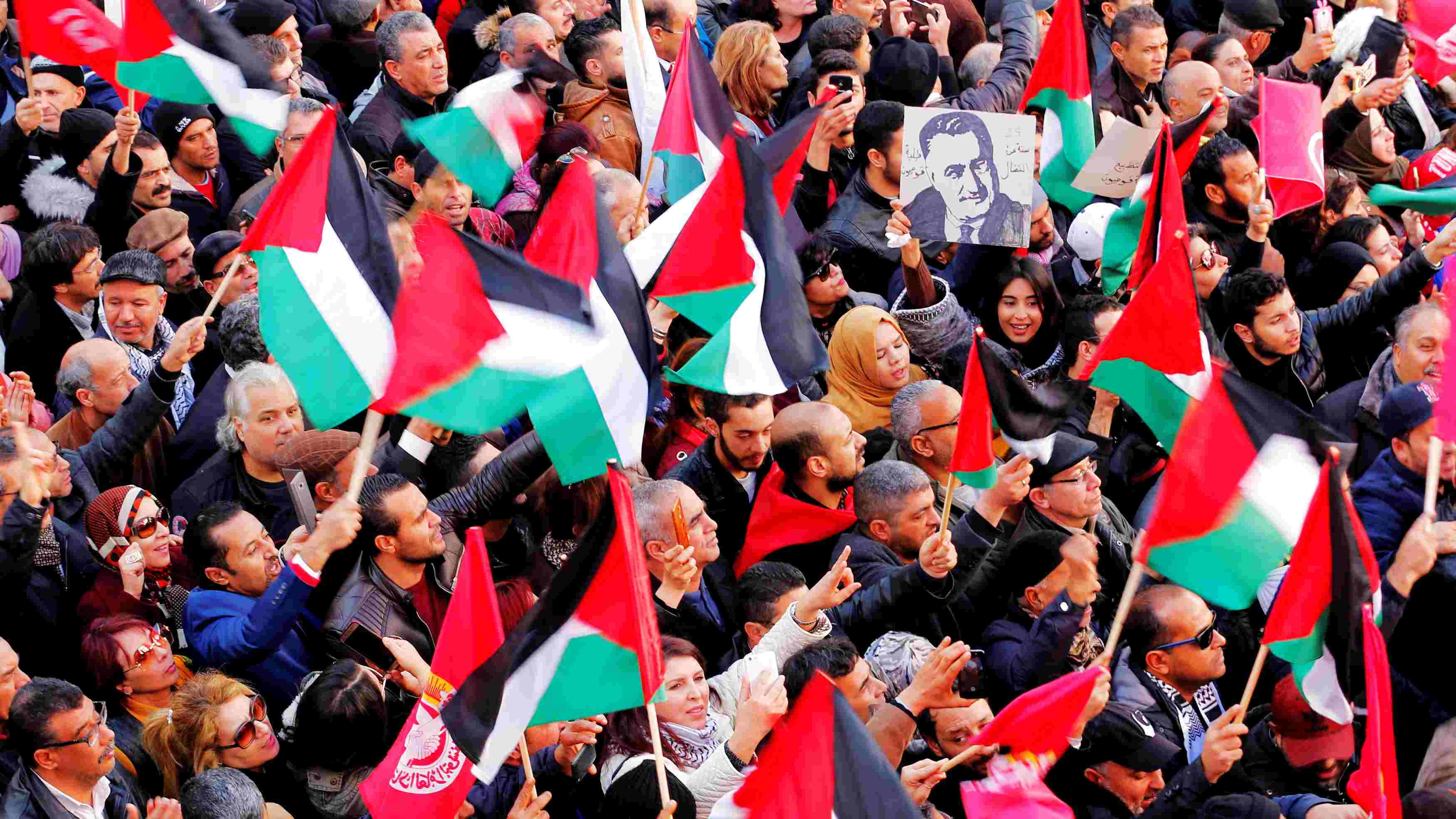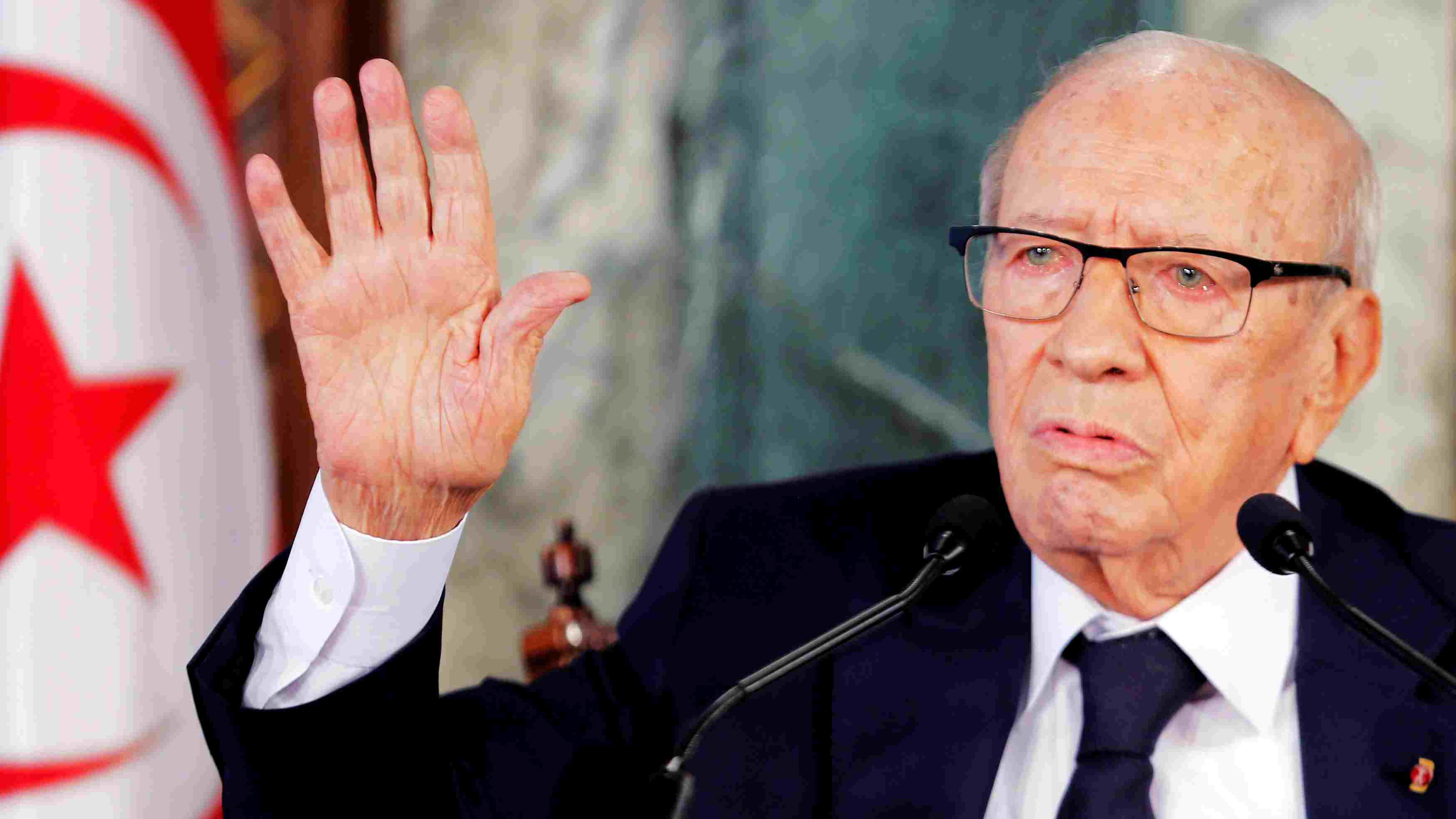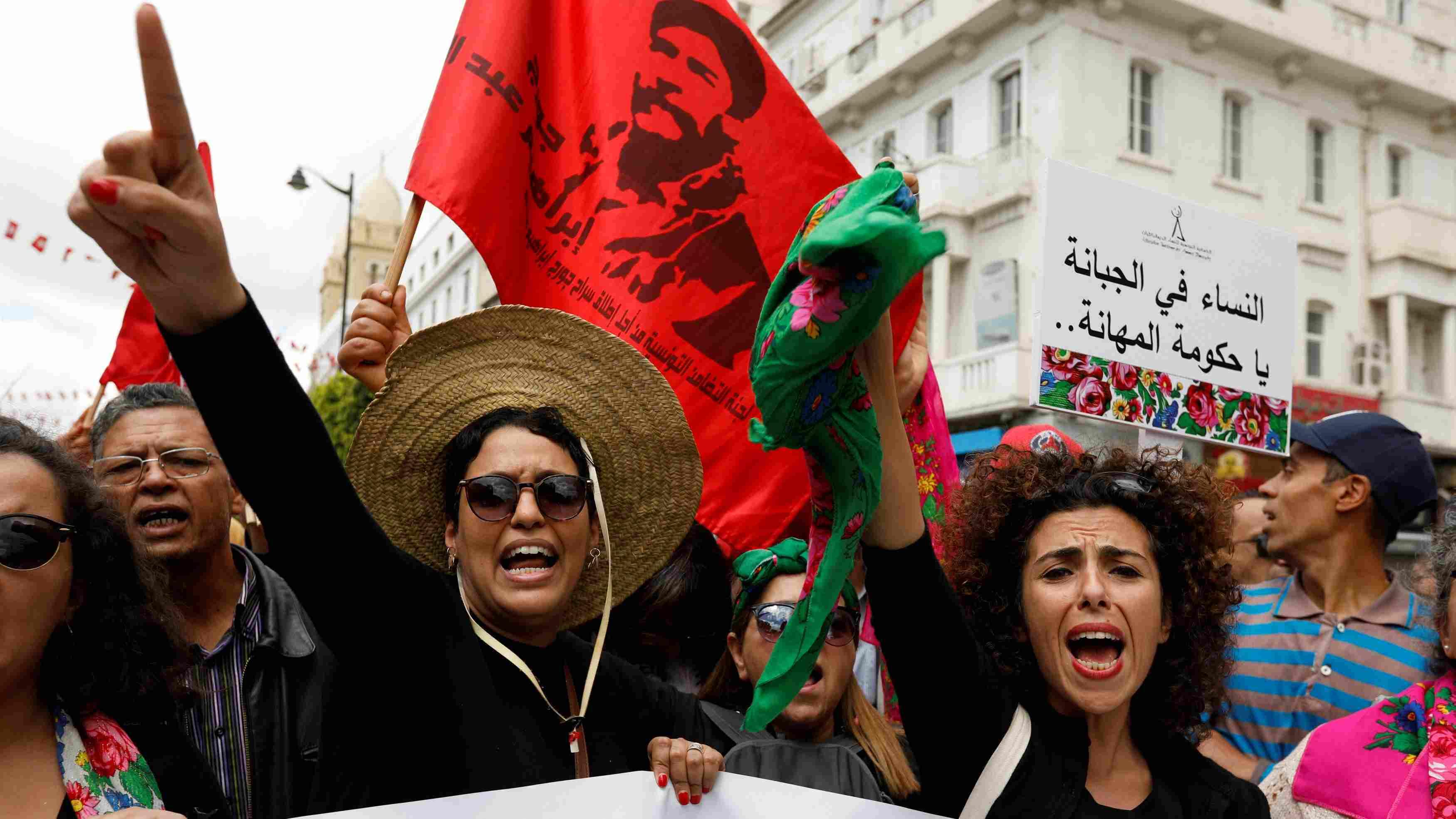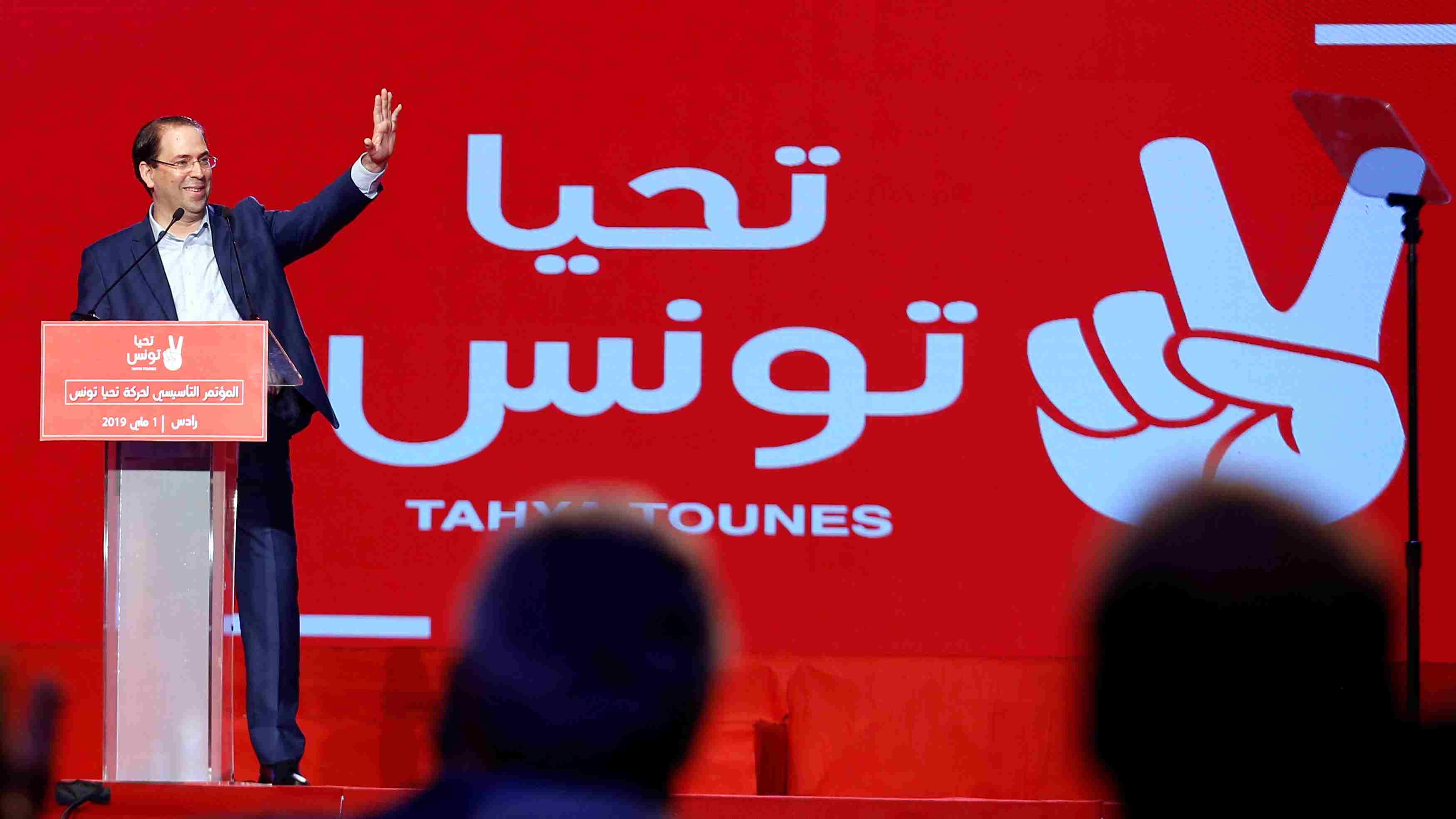
Middle East
15:40, 06-May-2019
Analysis: Tunisia's elections under cloud after state of emergency extended
Updated
15:19, 07-May-2019
By Abhishek G Bhaya

Tunisia's nearly four-year long state of emergency was yet again extended on Friday for a period of 30 days beginning May 6 and ending on June 4, drawing a fresh cloud of uncertainty over the political readiness of the country ahead of crucial parliamentary and presidential election later this year.
The North African country has been under a near-constant state of emergency since June 2015. Although briefly lifted in October 2015, it was reinstated on November 24, 2015, after an ISIL-claimed suicide bombing in Tunis killed 12 presidential guards.
Ever since, the state of emergency has been extended several times with the previous such decision imposed by Tunisian President Beji Caid Essebsi on April 6, which expired on Monday.
Friday's announcement was the first time since November 2015 that the decision on an extension of emergency was published in the official Journal of Republic of Tunisia (JORT), a bi-weekly periodical of all legislative events (laws and decrees), regulations and government statements.
The state of emergency is seen as suspension of democracy as it gives authorities additional powers while curtailing civil rights and freedoms guaranteed by the constitution, in the interest of maintaining civil order as part of broader counterterrorism and anti-corruption efforts.
Dawn of a new phase

Tunisian President Beji Caid Essebsi speaks during a news conference at the
Carthage Palace in Tunis, Tunisia, November 8, 2018. /Reuters Photo
Tunisian President Beji Caid Essebsi speaks during a news conference at the Carthage Palace in Tunis, Tunisia, November 8, 2018. /Reuters Photo
Tunisia has been described as the cradle of Arab Spring after an uprising against longtime dictator Zine El Abidine Ben Ali in 2011 set off a chain of revolutions against other Arab autocrats in the Middle East. Tunisia has been also frequently lauded as a success story after it became the only country to emerge with a functioning democracy after the uprisings.
The protests led Ben Ali to resign and seek political asylum in Saudi Arabia. Under a transitional government, Tunisia adopted a new constitution in January 26, 2014 declaring itself to be a republic and a representative democracy.
The country held its first parliamentary elections under the new constitution in October 2014, in which Nidaa Tounes (86 seats) and Ennahda (69) emerged as the two largest political parties and chose to share power through a National Unity Government.
"The coalition between the two largest political forces marked a new phase in the Tunisian transition: one that would tame political polarization and put ideological differences aside to focus on Tunisia's urgent socioeconomic needs," Sarah Yerkes, a fellow in Carnegie's Middle East Program, and Zeinab Ben Yahmed, former nonresident research analyst in the same program stated in a joint report for Carnegie.
Presidential elections were later held in two rounds on November 23 and December 21, which was eventually won by Essebsi of Nidaa Tounes.
Troubled democracy

Demonstrators shout slogans during a May Day rally in Tunis, Tunisia, May 1,
2019. /Reuters Photo
Demonstrators shout slogans during a May Day rally in Tunis, Tunisia, May 1, 2019. /Reuters Photo
Eight years after the landmark uprising, Tunisia is set to hold its second parliamentary and presidential elections in October and November this year respectively amid widespread concerns about the state of its democracy.
The failure to lift the state of emergency, considered by some as a key prerequisite for fair and credible elections, has led to analysts ponder whether Tunisia's political transition and its nascent democracy are in trouble.
Hopes that the country's post-uprising leadership would successfully tackle its myriad of political and socio-economic challenges have started to dim, a report by International Crisis Group stated.
"The economy is in the doldrums and the political leadership is increasingly split between Islamists and non-Islamists, both competing for control of state resources. This confluence of problems is stirring a general crisis of confidence in the political elite, and there is reason to fear that the country may backslide from its post-2011 democratic opening ahead of presidential and parliamentary polls at the end of the year," it said.
Since the 2011 revolution, Tunisia has seen a surge in terror attacks that have killed scores of its forces and 59 foreign tourists – a key reason cited by the government to retain the state of emergency. On Sunday, Tunisian security forces killed three suspected jihadists from an Islamic State group affiliate in the center of the country, the Interior Ministry said on Sunday.

Tunisian Prime Minister Youssef Chahed waves during a meeting of the 'Long Live
Tunisia' party in Tunis, Tunisia, May 1, 2019. /Reuters Photo
Tunisian Prime Minister Youssef Chahed waves during a meeting of the 'Long Live Tunisia' party in Tunis, Tunisia, May 1, 2019. /Reuters Photo
Over the past year, the country has also witnessed dozens of protests against austerity measures, implemented as part of the government's commitment to an International Monetary Fund (IMF) conditional loan program in 2016 worth some 2.8 billion U.S dollars.
According to Middle East Monitor, 75 per cent of young Tunisians are reportedly reluctant to participate in this year's elections citing the lack of improvement of their socioeconomic circumstances, and their disappointment with political parties that did not stick to their election promises after previous polls.
While President Essebsi, 92, announced last month that he won't seek reelection, despite calls for him to run, reports suggest Prime Minister Youssef Chahed is contemplating running in the presidential race.
The fate of Tunisia's democratic future is now pegged on the elections later this year. How the electorates behave over the next six months will determine if Tunisia will strengthen its democracy or allows the extremists forces to take control.
(Cover: People rally during a nationwide strike against the government's
refusal to raise wages, in Tunis, Tunisia, January 17, 2019. /Reuters Photo)
8652km

SITEMAP
Copyright © 2018 CGTN. Beijing ICP prepared NO.16065310-3
Copyright © 2018 CGTN. Beijing ICP prepared NO.16065310-3